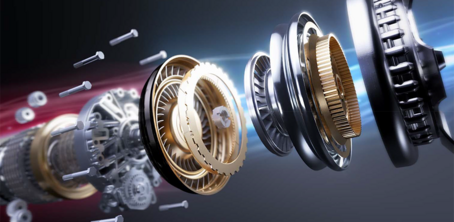Did you know…? About vehicle lubrication
Being thin has its advantages, at least it does when it comes to engine oils. In this text we share our thoughts about thin oils, but also about lubricating heavy vehicles in general. Read on to find out about reduced wear, lower fuel consumption and a ‘heated garage in a can’.

DID YOU KNOW…?
…THINNER OILS WORK GREAT ALSO IN HEAVY VEHICLES. So there’s nothing to say you must use thick oils in your heavy vehicle fleet. On the contrary, a 5W or 10W oil provides better lubrication than a 15W oil. The thinner oil reaches where it needs to and lubricates the engine faster and more effectively than a thicker one. The reduced wear can then contribute to lower fuel consumption.
…THE OIL IS IMPORTANT TO THE EMISSION CONTROL SYSTEM. Oils adapted for environmental engines safeguard the life of emission control systems in construction machines and other heavy vehicles. The right oil reduces the risk of clogged diesel particulate filters.
…THE VISCOSITY LEVEL AFFECTS THE STARTABILITY. In a truck engine, every degree of viscosity improves the startability by 5 degrees. So on a really cold winter day, a 5W oil improves startability by 10 degrees compared to a 15W oil.
…OIL CAN ACT AS A ‘HEATED GARAGE IN A CAN’. With a thinner engine oil, you avoid having to idle to keep the engine ticking over on cold days. This oil improves startability and reduces wear, and is therefore known as ‘a heated garage in a can’. And of course, no idling is good news for your finances and the environment!

…THE OIL FLOW IN A TRUCK ENGINE MOVES QUICKLY AND A LONG WAY. The oil covers a distance of 9.5 metres as it travels round all the nooks and crannies of an engine. Consequently, it’s crucial that there’s no soot or oxidation to obstruct the flow of oil. Due to the constant flow, each component in the engine is passed and lubricated by 135 litres of oil per minute.
…IT’S IMPORTANT TO CHANGE GLYCOL REGULARLY. It is important to not just add new glycol, but to change it completely. For the best types of glycol, the rule of thumb is to drain the system completely and change every 3–5 years. For lower quality glycol, ideally change it completely as regularly as once a year. Changing the glycol will ensure that the corrosion system works and safeguards the life of the water pump.
…THE REQUIREMENTS ON ENGINE OIL HAVE BEEN RAISED. The background is that emission requirements for heavy vehicles have increased dramatically in the past 30 years, for nitrogen oxides by as much as 90%. This has been achieved thanks to major changes in engine constructions, which in turn has led to tougher requirements also on the engine oils. They have to be able to cope with an increasingly tough environment and safeguard the life of post-treatment equipment, primarily the diesel particulate filter.
…THINNER OILS MAKE A DIFFERENCE IN GEARBOXES AND REAR AXLES. So if you’re used to getting thick oily lumps in your gearbox, it’s very easy to avoid them. In the rear axle or gearbox too, thinner oils help to reduce wear, while fuel consumption is also reduced thanks to lower viscosity in the driveline.

This might also interest you

Electric cars – new technology calls for new lubrication
The market for electric cars is setting new records. It is redrawing the map in the automotive industry, but also affecting lubricant manufacturers and other suppliers to the industry. Read more about a changing industry, where technical solutions and attitudes towards mobility are currently being challenged.

Why specially adapted ATF oils are important
Increasing demands on ever better fuel economy and lower greenhouse gas emissions are calling for more and more complex vehicle constructions. For automatic transmission vehicles, technical developments mean it’s more important than ever to choose the right ATF oil, to ensure the transmission works optimally its entire life.
All blog posts
Subscribe
Only available in Norwegian.
Smart Lubrication
Smart Lubrication is a blog from FUCHS where we share our common knowledge about lubricants and lubrication.

